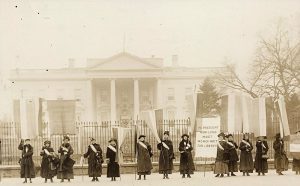Feminism in the U.S.
Historian Annelise Orleck on gender inequality, the fight for equal rights, and "Jane Crow" laws
What is multiculturalism? What exemptions and accommodations are often desired? Professor of Social Thought and Chair of Sociology, Anthropology and Social Welfare at Augustana College, Peter Kivisto, addresses the misunderstandings of multiculturalism.
The reason why I focus on multiculturalism is it’s probably one of the most contested, controversial ideas or concepts out there today. The tragic events, the shootings that took place in Paris in January of 2015 is one instance of what some people see as a failure of multiculturalism.
I’ll give you an example of accommodation. Muslims, often times in work places, request that they be provided the space and the time to respond to the call to prayer, which obviously can disrupt the workplace for a short period of time. When they make these requests, they’re not saying: we want to work fewer hours a day than our non-Muslim counterparts.They’re simply saying: let’s find a way where we can head the call to prayer, and do a days work. All we’re asking the employer to do is to accommodate this.
Now, what does all of this have to do with national identity. If you help people protect their sense of distinctiveness, doesn’t that work against the greater national unity? As it turns out, it doesn’t. We have empirical evidence to indicate that, and probably the best is from Canada. Canada by all accounts has the most robust multicultural policies. It has officially a been multicultural society since the 1970s. As it turns out, Canadians as a whole, not just immigrants, but Canadians as a whole, embrace multiculturalism. A survey was done a few years ago that found when thinking about what it means to be Canadian, multiculturalism was more important than hockey.

Historian Annelise Orleck on gender inequality, the fight for equal rights, and "Jane Crow" laws

Economist Deirdre McCloskey on economic development, Adam Smith, and the importance of liberalism

Professor Colin Sparks on decline in media, digitalization of information and top-ten Google searches